- Home
- Rose Tremain
Sadler's Birthday Page 4
Sadler's Birthday Read online
Page 4
‘Come and see,’ he said, amused by her shyness. ‘It’s quite a fine little house.’
She followed Joe from room to room. In each one he went to the window and opened it wide. ‘Air and sunshine,’ he said, ‘that’s important if a place is to be right.’
The rooms were square and small, smaller empty of furniture, and, to Annie, Joe seemed too big for the house. It wasn’t that he was very tall, but he was sturdy with wide, strong shoulders and a mop of curly black hair that made his head seem large. Annie wondered how old he might be – twenty-three perhaps, even twenty-five. His arms, where his shirt was rolled to the elbow, were tanned and covered in soft brown hair. Noticing them, Annie wanted to touch them.
‘What do you think, then, Annie? It’s a fair little old house, isn’t it?’
‘Oh it’s fine,’ said Annie. ‘My Dad and me are at the other end of town; the houses aren’t as fine there.’ And she smiled.
‘How old are you, Annie?’ Joe asked.
‘Sixteen.’
‘Ah.’
At that moment Betsy came back, clutching her vase, a vase much too tall and grand for the flowers they’d picked. She ran to Joe and he whirled her into the air, kissing her on both her pink cheeks.
‘What a time we’ll have, eh Bets!’ he said.
Then they began unloading the cart, piece by bulky piece of furniture, suitcases full of linen and china and dusty odds and ends that were all brought out and laughed over. Betsy complained playfully all morning.
‘Lor, Joe Elkins, anyone’d think we was dockside haulers, the way you make us fetch and carry.’
‘No one else to do it, Betsy.’
‘Well, what’d you have done without us?’
‘Done it all on my own.’
‘What conceit!’
So hot they all were by midday, and untidy and covered in dust and dirt and hungry and thirsty, that Betsy sat herself down on the bare floorboards of the front room and declared she’d lift nothing more till Joe fed and watered her. Annie flopped down beside her. ‘See,’ said Betsy, ‘strike!’
So they sent Joe off to Mrs Bolton’s General Store, sat and chatted while he was gone, even lay down flat on their backs on the dusty floor to have a rest and Betsy said she wasn’t tired at all really, because if you were happy didn’t Annie agree that you just didn’t notice other feelings? Annie shut her eyes. She could smell the sunshine now, feel a breeze on her face, coming through the wide open window. She noticed that her mind had begun to feast on her image of Joe and that already it was constructing all the dimensions that it couldn’t see, spinning a little web out from itself to him, along which she travelled like a fly.
‘You are silly,’ Betsy said suddenly.
Annie jumped.
‘Why, Bets?’
‘Well, you know what should happen? You should make Joe be in love with you.’
Annie smiled. ‘He’d never be!’
‘Why?’
‘He just wouldn’t.’
‘If you married him, you’d be my cousin too, in a way.’
‘So you would, Annie.’
They sat up. Joe was standing laughing in the doorway, holding a bag of groceries and a jug of cider. Annie blushed to think he’d heard their chatter, but Betsy was unconcerned.
‘I was telling Annie,’ she said, ‘she should marry you, then my two nicest people would be in one house.’
‘Know what, Bets,’ said Joe, ‘I do believe you always did think everyone should make their plans to suit you.’
Betsy wished she’d taken off one of her little brown boots so that she could throw it at him. ‘Where’s my picnic?’ she whined.
‘Come on,’ said Joe, ‘whoever heard of a picnic inside?’
So out they went, up into one of Farmer James’s big meadows, the one where two old oak trees stood side by side in the middle, giving them welcome shade. Joe spread the food out.
‘Pork pies! I might have guessed,’ said Betsy.
Joe looked bewildered.
‘We should have told him not to get pork pies, shouldn’t we, Annie?’
Annie smiled.
‘Don’t you like them?’ asked Joe.
‘Of course we don’t like them. Everyone in the whole town doesn’t like them any more.’
Annie explained about the factory.
‘I’d have thought you’d have heard about it,’ commented Betsy. ‘We’re famous for that.’
Joe apologized, promised to eat the three pies himself and give them all the bread and cheese.
‘That’s not fair,’ said Annie, ‘I might try a pie, anyway, I’ve not had one for so long, it’d make a change, wouldn’t it, Bets?’
‘I’d be sick,’ said Betsy, ‘especially on a day like this.’
‘Have a drink of cider, then,’ suggested Joe, ‘then you can go to sleep.’
‘I don’t want to go to sleep.’
‘I want you to.’
‘Just so you can say evil things to my friend Annie.’
‘Impossible.’
‘Why?’
‘She’s too nice.’
‘How d’you know, Joe Elkins?’
‘I know.’
‘She’s much nicer than me, everyone says so, don’t they Annie?’
‘Only you, Bets.’
‘No. They say it inside themselves, I can hear.’
‘Serve you right for eavesdropping,’ said Joe, and Betsy laughed. Then she cut herself a large chunk of bread and some cheese and lay down on her back while she made an elaborate sandwich of it. Annie watched her and Joe leant back against the tree, enjoying his pie and watching Annie.
He liked her shyness. There was, in his opinion, too fleeting a moment in a girl’s life when she had that kind of shyness and whenever he came across it, it amused and excited him. It was, he decided, a kind of covering that could play as seductive a role as a petticoat. His man’s mind judged as inconsequential the things that girls talked about, but when they didn’t talk much, blushed now and then, hid the brightness of their eyes, then he found them interesting.
Annie fitted exactly the concept he had of ‘girl’. Her face was long but he found it appealing, her body was enchanting – small breasts whose firmness he had already glimpsed in his mind, slim legs and neat little hips. He could imagine that Annie’s tongue was rather small and pointed, that when he kissed her it would touch his nervously, reluctantly until, little by little, he’d taught it what to do.
They’d eaten most of the food. Joe had had two pies and the big loaf of bread was nearly gone. Now they drank the cider, passing the jug round from one to the other, and Annie’s body was, for the first time that day, completely relaxed. She wanted to lie down, but wouldn’t let herself. To lie down so near to Joe was a temptation she felt she had to fight. Like looking at him. She only allowed herself to look at him every now and then. Annie closed her eyes. The sun had moved round a bit and was now on her face. She listened to the sounds in the field, letting them fill her head like a favourite piece of music.
It was two weeks before Annie saw Joe again. So busy, Betsy said he was, settling himself and his Mum and Dad into the house, that he’d had no time for calling, especially as he wanted to see the house straight before starting work with Mr James. Secretly, Annie was disappointed. She’d gone home very tired that Monday evening, unable to hide from her father the excitement she was feeling, confident enough that she’d be seeing Joe again very soon to tell Greg all about him. Greg beamed with pleasure as Annie recounted her day, couldn’t resist saying ‘Well, I’m glad something’s come along to cheer you up.’ And the next day, Annie put on a smarter dress than usual, just in case Joe called. But he didn’t come.
The hot weather stayed. After a week of it, people in the town were beginning to grumble, just as they grumbled about the cold or the rain for most of the year. Betsy called once, to say her mother was very poorly, but not a word about Joe, except to say he was busy.
‘How are they settling
in?’ asked Greg.
‘Oh, all right, Mr Sadler. It takes a while, that do, to get things in order.’
‘Well, you may tell your aunt and uncle and your cousin that if they’d like to drop by for a glass of rhubarb wine or even for one of Annie’s best steak and kidneys, they’d be more than welcome.’
‘I’ll tell them,’ said Betsy, ‘but they’re that busy.’
A few days later, a chilly morning surprised the town as it drew its curtains. Annie looked for her thick green smock to put on and for the first time remembered where she had left it, under the little stone seat in the Elkins’s porch. She asked herself at once if she’d have the courage to walk down and collect it. She didn’t know, she decided, she’d have to see.
She didn’t go that day or the next, but on Sunday morning she thought, I’ll go to church and make that my reason for being that end of town. It was fine again, warm but not too hot, with a sun that came and went as the clouds chose. Annie put on a brown dress, made sure her hair was as tidy as it could be and then, just as she was about to leave, heard her father say he’d fancy singing a hymn or two and that he’d come with her.
‘Hurry, then, Dad, and change or you’ll be late.’
‘What’s the time, then?’
‘Twenty to.’ Annie lied by ten minutes, knowing he hated hurrying.
‘Oh you go then, girlie. I can’t fancy rushing about on a Sunday morning. You go on.’
So she picked up her hymn-book and went out, noticing as she closed the front door that her hands were shaking.
The church was full. Years afterwards, when Annie remembered that church, she saw it always full of people who listened eagerly, sang loudly, prayed with their eyes shut. She liked to sit at the back, near the organ. ‘Just so you can criticize the playing,’ Greg teased. ‘Oh no,’ Annie said, ‘I like to watch the other people.’
She sat now in a pew opposite the door, opened her hymn book and started to read through the words of the first hymn, but each time the door opened she looked up. Because, living just across the road, it had occurred to her, Joe’s family might feel obliged to come, even if they weren’t churchgoing people. She’d had a good look round, of course, and they weren’t there yet, not that she could see. But it was only five to eleven and living so near they’d be sure to hurry in at the last minute.
But the service started and the door stayed shut. Joe hadn’t come, so she’d have to make the smock her excuse for seeing him after all. Annie started to sing the hymn:
… Time like an ever-rolling stream
Bears all our sins away,
They fly forgotten as a dream
Dies at the opening day
Then she heard the heavy latch on the door lift again, glanced up and saw Joe come through the door. She looked down again at her hymn-book, but the words were jumping on the page and she couldn’t sing. He slipped into the pew beside her and put his broad hand over hers that held the hymn-book.
‘Forgot my book,’ he whispered.
Sitting at the parlour window, smoking his pipe and watching the people going into church, Joe had suddenly caught sight of Annie going down the path and he made a quick decision to put on a tie and the black jacket he kept for best and follow her in. Thinking about her as he changed, he counted almost a fortnight since the day they’d met. He’d been holding her in reserve, thinking about her now and then, letting the days pass till the right one should arrive for a second meeting. Because he was sure, was Joe Elkins, that whatever beauty he had chosen to see in Annie Sadler was being lovingly cared for and that in her mind it now existed only for him.
Feeling, smelling him standing close to her, letting her hand be held, Annie loved him. But, half afraid of where that love would take her, sensing that what she felt was unconnected with any of the notions she’d had about love as she’d sat dreaming in Greg’s front room, she began to drag it on to safe soil, saw herself marrying Joe in this very church, saw her father smiling as he poured wine for them afterwards, taking Joe by the arm and telling him he was glad. She saw her dress, expensive silk from Mrs Collard’s drapers shop, bought from weeks and weeks of savings, but so soft next to her skin that she hardly felt it at all …
The service was nearly over. The sermon had been short – as it always was because the rector had varicose veins and didn’t like to stand for long, especially in summer. Annie hadn’t heard a word of it. And Joe, too, had been absorbed by Annie, watching her head as she knelt down to say prayers, noticing how very silently her body moved. Once, during the sermon, he’d turned to her and seeing her eyes all ashine had felt a sudden dread and turned away.
But he wanted her. Not for a year or more had he felt as urgent a desire for a girl as he felt for Annie Sadler. He believed she was his discovery and that this gave him an absolute right to her. For hadn’t he, in seeing her beauty, made it flower? No other man had ever seen in her what he saw, he was sure. They had passed her in the street, at the market, in church, but not looked, not seen. He’d have to be careful, of course, not to fill her head with romantic dreams, but he’d have her all right, if he jostled time a little. Her eyes told him she fancied herself in love. All that had to be done now was to weave a labyrinth where, believing herself lost, she’d run to him.
Outside the church, he put his hand under her elbow and they made silent progress up the street, not touching after they left the churchyard, nor looking at one another.
‘I’ll be seeing you, Annie,’ said Joe when they reached Annie’s door, and he walked off quickly before she could ask him when.
For Annie the summer now lay in abeyance. July came, with another spell of hot weather, but Annie stayed indoors mostly in the dark parlour. She believed now that she had been wrong: Joe had felt nothing for her. So silly of her, so like the plain virgin she was to have interpreted his friendliness as love. Each morning when she got up, early these days, woken by the sun, she took off her nightdress and looked critically at her body in the mirror, wondered how it could be changed to fulfil the role God in His unwisdom had fashioned it for. Only a week or two ago, on the day of the picnic, she had been quite pleased with it, felt it move with joy. Now it angered her, thin straight thing that it was, feeling passion and yet exciting none, and the future made her feel afraid. She had been cheated; she would grow old untouched.
Her head began to fill with plans. She would try once more. She would go down to fetch the smock one evening when Joe was home. She would buy a new dress, she’d ask her father for the money. Then she put the plan aside. Joe would know she had only come to see him. He would despise her. And what if, after all, Joe had a girlfriend? She might be there when Annie called, sitting at the family table, accepted, loved. She might be beautiful. No, Annie wouldn’t call in. She’d tell Betsy about the smock and Betsy would tell Joe and he would bring it up one evening, while there was still daylight enough to go for a walk round the town. But then why indeed should Joe choose to take her for a walk, and even if he did, what could she say to him?
Greg Sadler noticed a sullenness in his daughter and he understood the reason for it. He was too wise to think of meddling, too loving not to feel sad. If things continued as they were, it might be better after all to send Annie to London. She could be found domestic work there and her aunt would take care of her and help her to settle down. But Greg hated to think of sending her away. For the first time for some weeks he began thinking about his wife, wishing she were there so that Annie, who kept some things secret from him, might talk to her.
Across the road, Betsy’s mother still lay in her sickroom. The doctor was very worried, so Greg had heard, and, looking up at her window with its drawn curtains day after day Greg believed she was dying. He went to see her. He took her some of his wallflowers.
‘They’re lovely, dear,’ she said. ‘That’s always been one of my favourites.’
‘How are you feeling, Mrs Elkins?’
‘Oh not so bad, dear, thank you. A little better today. It’s my ches
t, you see.’
She was very white – yellow white – and her eyes were tired. ‘I have a bother sleeping,’ she said.
Betsy was sitting by the window. No ribbons or smiles today, only a wan little face and nervous hands twisting a pocket handkerchief in her lap.
‘How’s your cousin, Betsy?’ Greg asked her. ‘Settled in yet?’
‘Oh yes,’ Betsy said, ‘he’s working for Farmer James.’
‘He’s been to see you, has he?’ Greg asked Mrs Elkins.
‘What, love?’
‘Joe. Cousin Joe. He been up to see you?’
‘Oh yes.’
‘He comes every evening,’ said Betsy.
Greg sat down next to Betsy. He was tempted, in that quiet room, to tell her about Annie. But he stopped himself. Don’t you meddle, Greg Sadler, he told himself. He stayed till he fancied Mrs Elkins was getting tired, stayed and chatted about the things in his garden. Then he got up and left. On the way downstairs he shuddered.
Then when he got home, Annie greeted him with a smile – the first smile for days, it seemed to Greg.
‘Joe Elkins called while you were out, Dad. He brought my smock.’
The smock had been quite useful to Joe. He had let a good fortnight pass after he’d seen Annie in church and then judged the time right for a visit. He knew it was no good letting girls like Annie Sadler come home to meet his parents. Hardly into the front room and they began to get notions about becoming part of the family. That had happened once before, with a publican’s daughter in Colchester called Faith. And you couldn’t take them presents or be really nice to them or you’d find you’d get no more than a kiss without a great promising of eternal love and fidelity. And just to say those things made you feel old. But he wanted to see Annie. He thought he’d ask her would she fancy dropping by for a glass of wine after supper one evening. His parents spent most evenings with Betsy’s mother nowadays, taking it in turns to sit with her. Joe would tell Annie that he was lonely.

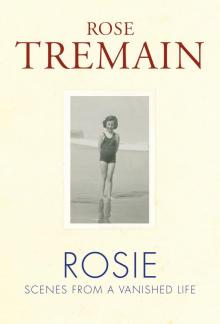 Rosie
Rosie The Garden of the Villa Mollini
The Garden of the Villa Mollini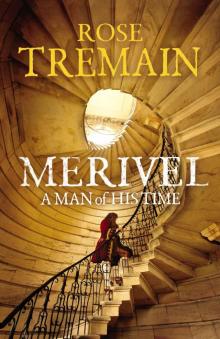 Merivel: A Man of His Time
Merivel: A Man of His Time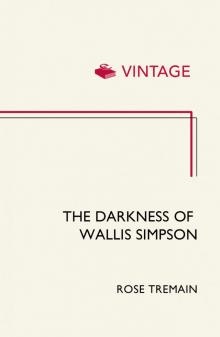 The Darkness of Wallis Simpson
The Darkness of Wallis Simpson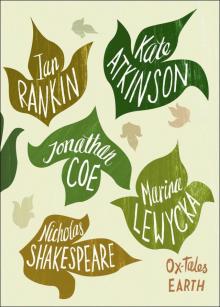 Earth
Earth Sacred Country
Sacred Country The Swimming Pool Season
The Swimming Pool Season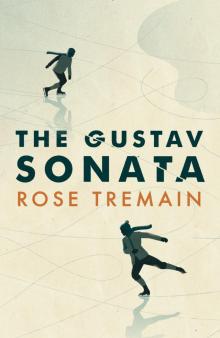 The Gustav Sonata
The Gustav Sonata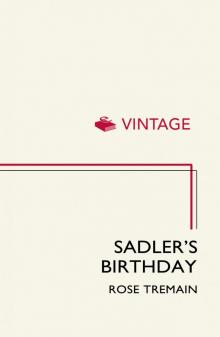 Sadler's Birthday
Sadler's Birthday The Cupboard
The Cupboard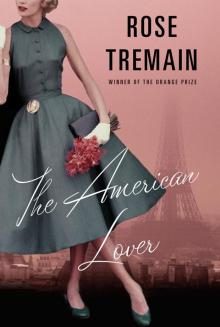 The American Lover
The American Lover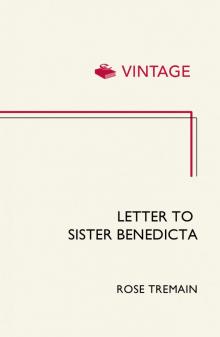 Letter to Sister Benedicta
Letter to Sister Benedicta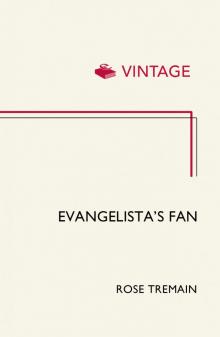 Evangelista's Fan
Evangelista's Fan Restoration
Restoration The Road Home
The Road Home The Colonel's Daughter
The Colonel's Daughter The Way I Found Her
The Way I Found Her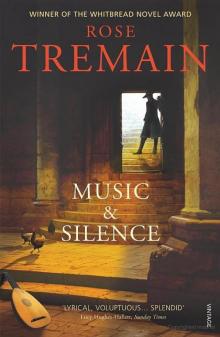 Music & Silence
Music & Silence